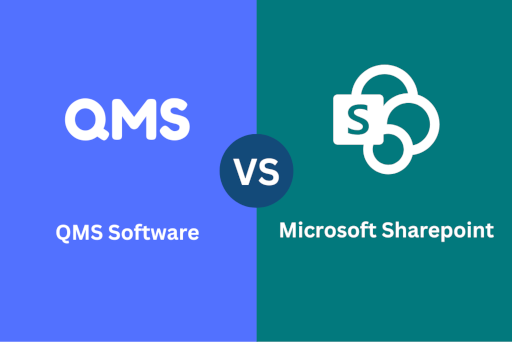The Importance of Quality Management Systems (QMS) in Today’s Business World

In the dynamic and highly competitive business environment of today, quality is no longer just a differentiator—it is an expectation. Customers demand high-quality products and services, regulatory bodies enforce stringent compliance requirements, and organizations strive to reduce costs while improving efficiency. Amid these pressures, a robust Quality Management System (QMS) becomes a necessity rather than a luxury.
A QMS is a structured framework of policies, processes, and procedures that help an organization achieve its quality objectives. From ensuring product consistency to enhancing customer satisfaction, QMS serves as a cornerstone for operational excellence. Let’s explore why a QMS is indispensable in the current business landscape.
Meeting Regulatory Compliance
In industries such as healthcare, aerospace, automotive, and food production, compliance with stringent regulations is mandatory. A well-implemented QMS ensures that businesses consistently meet legal and industry-specific requirements, avoiding hefty fines, legal disputes, and damage to their reputation. Standards like ISO 9001, ISO 13485, and FDA regulations are often benchmarks that companies strive to meet. A QMS simplifies adherence to these standards by providing a clear roadmap for compliance.
Enhancing Customer Satisfaction
Customer expectations have evolved dramatically over the years. Today, customers expect not only high-quality products but also seamless experiences and prompt services. A QMS enables organizations to meet and exceed these expectations by:
- Ensuring consistency in product quality.
- Identifying and addressing customer complaints promptly.
- Monitoring feedback to drive continuous improvement.
Satisfied customers become loyal advocates, which in turn enhances brand reputation and drives business growth.
Driving Operational Efficiency
Inefficiencies cost organizations time and money. A QMS streamlines processes by eliminating redundant tasks, minimizing errors, and optimizing resource utilization. By embedding quality at every stage of production or service delivery, businesses can:
- Reduce waste.
- Lower production costs.
- Improve turnaround times.
Moreover, a QMS fosters a culture of continuous improvement, encouraging teams to find innovative ways to enhance processes and outcomes.
Facilitating Risk Management
Risk is inherent in every business operation. From supply chain disruptions to product recalls, unforeseen events can derail business objectives. A QMS equips organizations with tools to identify, assess, and mitigate risks proactively. By embedding risk management into everyday operations, companies can:
- Prevent costly mistakes.
- Protect their brand reputation.
- Ensure business continuity.
Enabling Scalability and Growth
As businesses expand, maintaining consistency across operations becomes challenging. A QMS provides the structure needed to scale operations without compromising on quality. Whether entering new markets, launching new products, or acquiring other businesses, a QMS ensures that quality standards remain consistent.
Supporting Key Quality Processes
A comprehensive QMS integrates critical processes such as Non-Conformance Management (NCM), Corrective and Preventive Actions (CAPA), Incident Management, and Document Control. These components ensure that quality issues are identified, addressed, and prevented efficiently:
- NCM: Ensures non-conformances are recorded, analyzed, and resolved promptly.
- CAPA: Implements measures to correct existing issues and prevent their recurrence.
- Incident Management: Manages quality-related incidents to minimize risks and improve responses.
- Document Control: Ensures all documents are current, accessible, and compliant with regulatory standards.
By addressing these processes, organizations can create a robust framework that supports continuous improvement and compliance.
Building Employee Engagement and Accountability
Employees are the backbone of any organization. A QMS promotes a culture of accountability by clearly defining roles, responsibilities, and expectations. It also empowers employees through training and access to standardized processes, leading to:
- Improved morale and job satisfaction.
- Higher productivity levels.
- Reduced turnover rates.
Gaining Competitive Advantage
In a crowded marketplace, businesses that consistently deliver quality stand out. A QMS enhances an organization’s credibility, providing a competitive edge. Certifications like ISO 9001 signal to customers and stakeholders that a company is committed to maintaining the highest standards of quality.
Adapting to Technological Advancements
The digital era has transformed the way businesses operate. Modern QMS solutions leverage technology to offer real-time insights, automate workflows, and integrate with other business systems. These capabilities enable organizations to respond quickly to changing market conditions and customer needs.
Conclusion
The necessity of a Quality Management System in today’s business world cannot be overstated. It is a vital tool that helps organizations achieve compliance, enhance customer satisfaction, drive efficiency, manage risks, and foster growth. As businesses face increasing pressures from competitors, regulators, and customers, investing in a robust QMS is no longer optional—it is essential for survival and success.
Trackmedium QMS provides businesses with a modern, efficient, and scalable solution to manage their quality processes seamlessly. By integrating key features such as NCM, CAPA, Incident Management, and Document Control, Trackmedium empowers organizations to meet quality objectives effectively. Commit to quality with Trackmedium and gain the trust, loyalty, and competitive advantage needed to thrive in today’s dynamic marketplace.



